
Presenters and abstracts

“We’re in it together”: considerations for developing a whole school approach to outdoor learning.
Jo Clanfield, the founder of Teach Outdoors, is an experienced primary teacher passionate about getting children learning outside. Jo has spent the last seven years supporting teachers and schools nationwide, to utilise their outdoor environments for teaching and learning. Jo is a qualified Forest School and Beach School Practitioner. She has a keen interest in supporting dyslexic learners and takes an active role as a Trustee in the Northamptonshire, Buckinghamshire Dyslexic Association. Jo has a specialised understanding of the benefits of outdoor learning, and – along with her team of skilled educators – is on a mission to share this with schools across the country.
Jo’s talk will discuss the development of a new pilot project, which focuses on creating a whole school approach to outdoor learning and its impact on well-being and involvement. She will explain why there is a need for a whole school approach and what it looks like in practice. Her talk will explore the different elements of support included in the pilot project and reflect on feedback from the primary schools within the pilot.
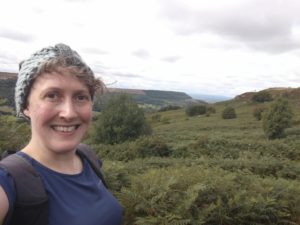
Toilets, tampons and talking about gender
Jill Owens is a field studies tutor at the Cranedale Centre in North Yorkshire. She’s taught outdoor yoga on a farm, indoor geography lessons to A level students and countless campfire songs in her twenty years as an educator, as well as achieving a PGCE from the University of Cambridge. She’s lucky enough to spend most of her time teaching in the outdoors and is actively trying to ensure that this is a positive experience for all of her students.
Time is a scarce resource in curriculum-focused environmental education. Teachers often have to justify taking students out of school by maximising their coverage of curriculum content, making trip schedules so tightly packed that there’s barely enough time for lunch. In this workshop, we’ll discuss why we’ve made stopping for a toilet break one of our priorities and how this impacts student wellbeing at our residential field studies centre.
In this workshop, field studies tutor and former Geography teacher Jill will identify issues around toilets, menstruation and bedrooms that reduce the wellbeing of students on residential trips, with particular reference to women and gender minorities. She’ll then describe the practical steps that the team at the Cranedale Centre have put in place to try and tackle these issues (including the creation of a free “Wild Wee” poster that had a Facebook reach of over 60 000) alongside a frank discussion of the challenges that they are still working to address.
Whilst the focus of this workshop will be on the day-to-day practice of delivering curriculum-focused education to school-age students, Jill will also explore how these small changes link to bigger issues of equality, diversity and inclusion in outdoor settings.
Workshop participants will be invited to discuss in small groups how the practical steps taken at Cranedale might be implemented in other outdoor and environmental education settings. There will be time to share examples of both best practice and big challenges in a supportive environment so that each participant departs feeling inspired to try something new.

Wildlife Champions: Lessons in Constructive Hope
Paul Martin has been involved in education for over 25 years, initially as a Geography teacher but for the last 14 years, leading the education work at Devon Wildlife Trust. Paul has been involved in the development and delivery of a wide range of programmes, including the Wildlife Champions, a student voice project around taking action for local wildlife. Paul recently completed an MA in Education combining nature connection, eco-anxiety, and agency for his dissertation, using Wildlife Champions to explore children’s perspectives on these elements of environmental education. Paul is passionate about creating ‘constructive hope’ in the face of global crises through nature-based education programmes.
Nature connection, eco-anxiety, environmental futures, and constructive hope were the themes for Martin’s recent Master’s dissertation (2022). The research was carried out in two primary schools in Exeter with children who had been involved in an education project run by Devon Wildlife Trust with control groups from those who have not been involved.
For 11 years the Devon Wildlife Trust has been leading a student voice project. The Wildlife Champions programme allows students to make active choices for wildlife in their schools and communities. One of the central aims of the project from the outset was to offer an opportunity for empowerment over things that sometimes feel overwhelming, directly addressing the rise of eco-anxiety through ‘constructive hope’ The Wildlife Trust also delivers a programme of learning in schools including wellbeing through nature, training teachers to support their student’s wellbeing through connection to nature. The presentation will explore the research findings and lessons learned from the Wildlife Champions and Nature Based Learning programmes – particularly focused on the idea of ‘constructive hope’. It will be used as a springboard for an interactive discussion on how constructive hope could be a theme incorporated into environmental education programmes as a tool for combating eco-anxiety, promoting pro-environmental behaviours, and learning at the same time.
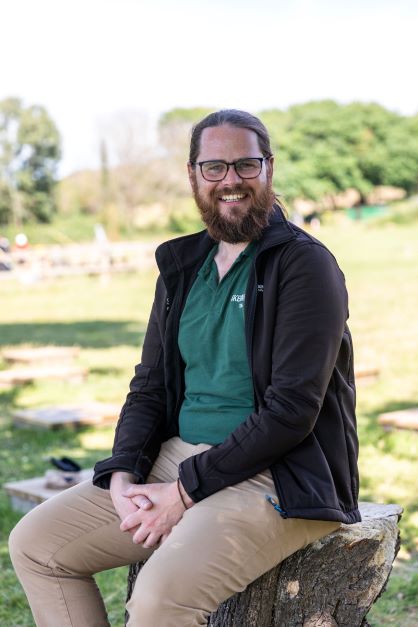
Tom Humphreys is Deputy Head of Centre at Skern Lodge, an outdoor education and activities centre based in the seaside village of Appledore on the North Devon Coast. After graduating as a Geographer, Tom worked looking after the chalk grasslands across the Surrey Hills before discovering youthwork and leading groups of young learners into the woods. Tom has held tutoring posts at environmental education centres in London, Surrey, and Dorset before completing his journey westwards and joining the team at Skern Lodge. Based on the banks of the Torridge estuary in the heart of the North Devon UNESCO Biosphere Reserve, Tom is regularly joined by groups of Geographers conducting fieldwork on the rocky clifftops of Hartland, the beaches of Westward Ho! and Pebble Ridge, and the sandy dunes of Braunton Burrows.
Tom has seen student wellbeing compromised due to the pressures of satisfying the needs of the Non-Examined Assessment at A Level, and he is confident that practitioner awareness can promote both the completion of the NEA and protect wellbeing. Opening with a discussion on what are the ‘must have’ outcomes from a fieldwork residential, with focussed goal setting of an A Level Geography NEA expedition. Outputs will be fundamentals such as harvesting primary data, using a range of equipment and techniques, skill development and expertise, completion of a stats test and creation of data presentation including graphs, and a literature review with access to secondary data. There will be a led discussion on Adair’s ‘Action Centred Leadership’ (ACL) model, highlighting core actions that a group leader must take to lead your team of students effectively to achieve success: Task, Team, and Individual. Understanding that the pressure of completing the Task (the NEA) may overshadow or eclipse the Team or Individual, leaving to wellbeing being compromised.
The group will create a master list of objectives to supplement the ‘must have’ list from earlier that will allow for the promotion of student (and teacher!) wellbeing alongside traditional fieldwork completion. For example; nutritious and tasty food, comfortable and warm accommodation, welcoming and learner-friendly atmosphere, and rapport building between staff and students. Key examples shared of fieldwork programmes that have deliberate ‘wellbeing events’ alongside traditional fieldwork, such as free time in the local seaside town or an evening dip in the centre’s swimming pool. There will be a led discussion on the Challenge and Support model, exploring how appropriate levels of support can be offered by staff to match the appropriate level of challenge inherent in fieldwork with a discussion on the perils of too much support.
The workshop will end with the delegates authoring a simple two-night residential fieldwork programme, sympathetic to Adair’s leadership modelling allowing for the completion of NEA fieldwork fundamentals alongside wellbeing promotion. Best practice ‘takeaways’ include pre-visit correspondence and information exchange, expectation setting, inclusivity requirements, dietary, personal protective equipment (aka kit list), timekeeping assistance, aftercare, etc.
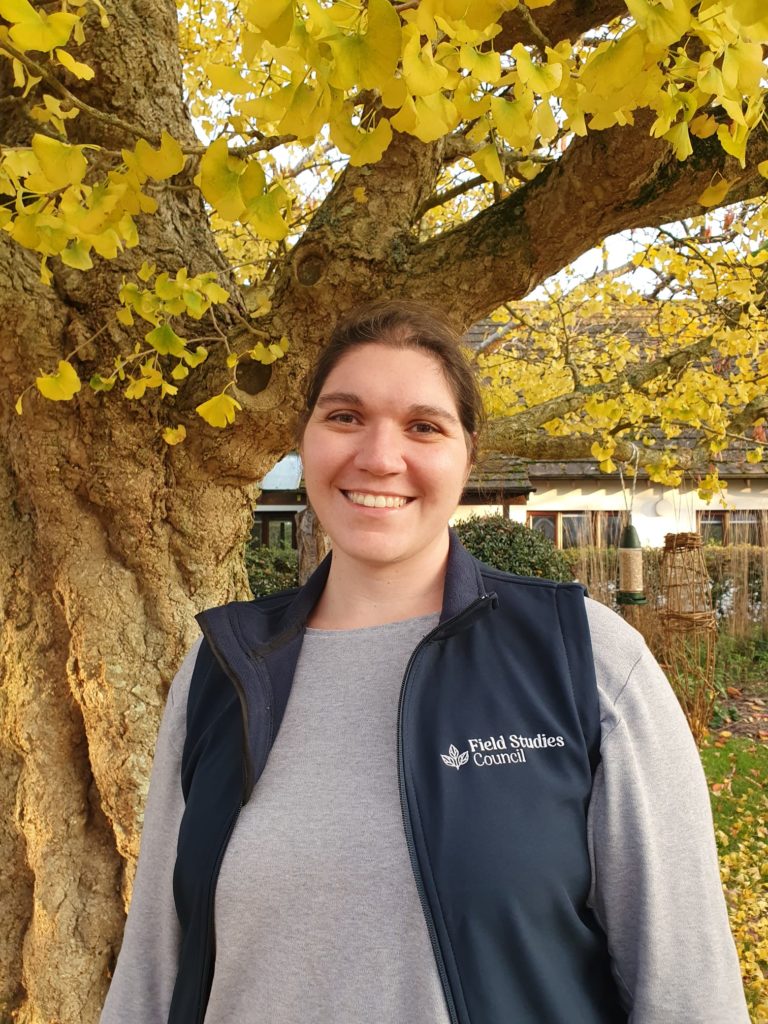
Practical strategies for wellbeing
Rosie Molton is a Travelling Senior Tutor (West) for the Field Studies Council. For the last 7 years she has been working in Outdoor Environmental Education, facilitating educational experiences at many Field Studies Council locations. Rosie has just completed he MA Education with proficiency in Special Educational Needs, through the University of Exeter. Her dissertation focused on the wellbeing of the people who work with Autistic learners in outdoor education settings. As a Travelling Senior Tutor, her role is to support centre teams both in onsite delivery and with national resource development and projects. Currently, Rosie is developing Wellbeing and Mental Health resources to support the Field Studies Council’s curriculum-based environmental education programmes.
During this interactive session, we will share some of the practical strategies to improve both your wellbeing as an educator and of your learners. The aim is to facilitate a wider conversation about the small changes we can all make to our practice now whilst developing bigger plans for future delivery. The activities are not subject-specific so can be applied in different ways to all ages and within many outdoor environments.

A systematic review and meta-analysis of the relationship between nature connection and wellbeing in children (work in progress by Dr Alexia Barrable, Dr Samantha Freidman, and Dr Marietta)
Dr Alexia Barrable is an academic with interests in human-nature interactions and their impact on our health and well-being. Alexia has conducted research on children’s nature connection and its associations, as well as on education and pedagogical environments that support or hinder a connection to the natural world.
Nature connection describes a positive relationship between humans and the natural world, with various benefits for both humans and nature. These include an increase in pro-environmental behaviour and attitudes in people with higher nature connection, and a small but robust positive correlation of nature connection with various types of wellbeing and flourishing. A host of systematic reviews and meta-analyses have explored the relationship between nature connection and different types of wellbeing in adults. Capaldi et al. (2015) in a meta-analysis of 30 studies (n=8523) found a small (r=.19) but significant effect size of nature connection and wellbeing (including vitality, life satisfaction and positive affect). Similarly, Pritchard et al. (2020) undertook a meta-analysis of 20 samples (n = 4758) and found a similar effect size for the relationship between nature connection and eudaimonic well-being (r = 0.24). No meta-analysis to date has been undertaken on the relationship between nature connection and wellbeing in children. We will present a systematic review and meta-analysis of the relationship between nature connection and wellbeing in children (aged 18 years of age or below). We also present implications for outdoor and environmental education programmes which focus on wellbeing as a goal.

Promoting wellbeing in autistic students through nature-based learning
Dr Samantha Friedman is a Lecturer in Education at Northumbria University in Newcastle. She recently completed her PhD at the University of Cambridge; her doctoral work focused on using natural spaces and nature-based learning methods to support wellbeing in autistic people. Samantha is a qualified Level 3 Forest School leader passionate about research and practice that contributes to making outdoor spaces inclusive and neurodiversity-affirming.
There is considerable evidence supporting the wellbeing benefits associated with time in and near nature, though much of this research focuses on the experiences of adults rather than children. Similarly, autistic people are less often represented in research on the benefits of nature and nature-based learning. Samantha’s PhD research sought to address this gap by first developing an understanding of how autistic people experience nature across the life course and the relationship that nature has with their wellbeing. This is particularly important given that autistic people report more diminished wellbeing, in terms of both mental and general health, than their neurotypical peers.
Additionally, through her PhD research, Samantha explored how autistic children experienced a Forest School programme set within a specialist autism school with expert practitioners and only autistic students. This study was framed by self-determination theory, which she proposes is an effective lens through which practitioners can consider how their nature-based practice might support or hinder wellbeing in autistic learners. Autistic children often have difficult school experiences; effective nature-based practice that focuses on improving wellbeing could be one way of countering these difficult and sometimes traumatising experiences.
In this presentation, Samantha will discuss the existing research around nature, Forest Schools, and other types of nature-based learning with autistic people. In particular, she will focus on the studies of autistic people’s experiences in nature that formed part of my PhD. Samantha will draw from her own experiences and conversations with expert practitioners to present practical guidance for practitioners who wish to deliver neurodiversity-affirmative, wellbeing-promoting nature-based practice in both school and independent settings.
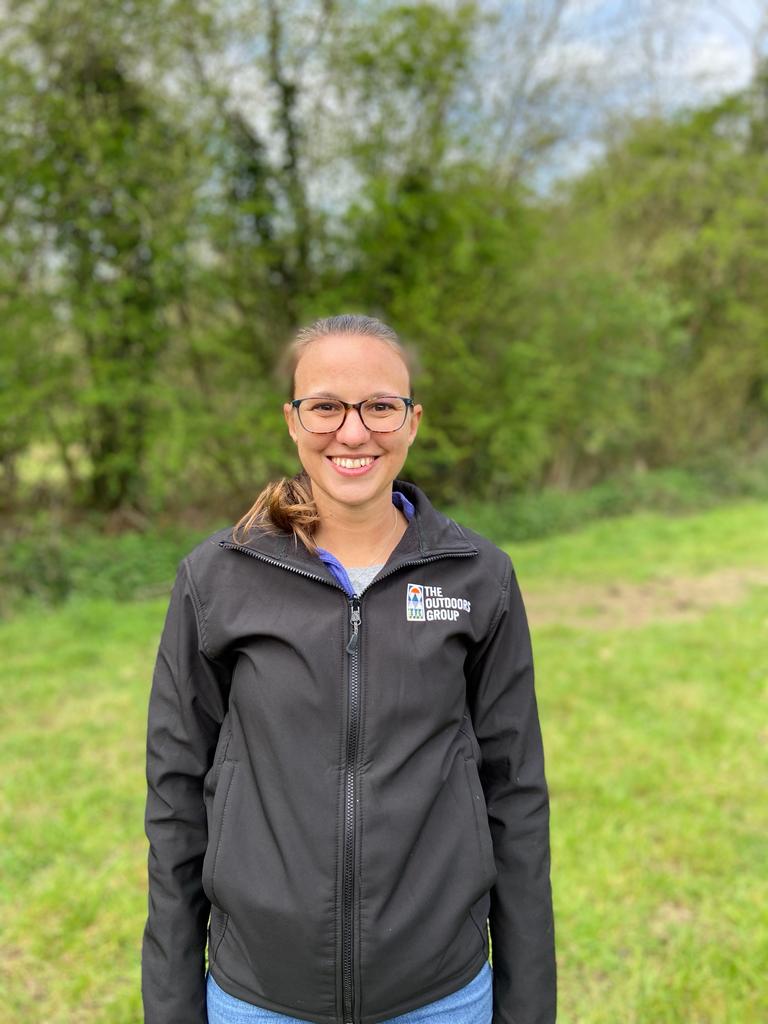
Forest School: How structure in a learner-led environment facilitates improved mental health outcomes for those with SEND
Amanda studied Special Education/Autism and Behaviour Analysis in America before starting a career working with vulnerable young people within schools and outdoor education settings around Vermont. After moving to England in 2017, her passion for supporting neurodiverse young people in the outdoors became stronger than ever and she started a career as the head of an alternative provision with The Outdoors Group. In her spare time, Amanda enjoys pottery, rock climbing, and exploring Dartmoor with her dog.
Transitional Learning Programme (TLP) at The Outdoors Group almost predominantly works with neurodiverse learners who are struggling in their main educational setting. Our provision works because the outdoors is proven to help with mental health difficulties and general wellbeing. Research shows that time spent outdoors leads to increased confidence, communication skills, teamwork and leadership skills, and improves attendees’ relationships with learning.
We have found learners need the outdoors as a base level to access all other elements of their lives. Structure within a usually unstructured environment provides boundaries so that they feel safe and understand what is expected of them. This is key for neurodiverse children and having this structure at Forest School can help translate to other areas of their lives.
During the pandemic, we observed that the learners most affected were those already struggling with their mental health/wellbeing as the restrictions further isolated them. Many of these learners are neurodiverse and continuing their routine activities as much as possible (as they fell in the ‘vulnerable’ category and could still attend provision) was key to supporting them in a very unstable and unsettling time.
In our presentation, we will look at 3 data-driven case studies of specific TLP learners who have benefitted from structure in our outdoor Forest School (typically unstructured) environment. After providing a measurable level of structure, improvements were seen in their wellbeing and mental health with led to reintegration in their main educational settings.
We will conclude the presentation with practical tips and information from a research project about the measurable level of structure necessary for those with SEND in these outdoor settings and how to implement that structure in practical ways.
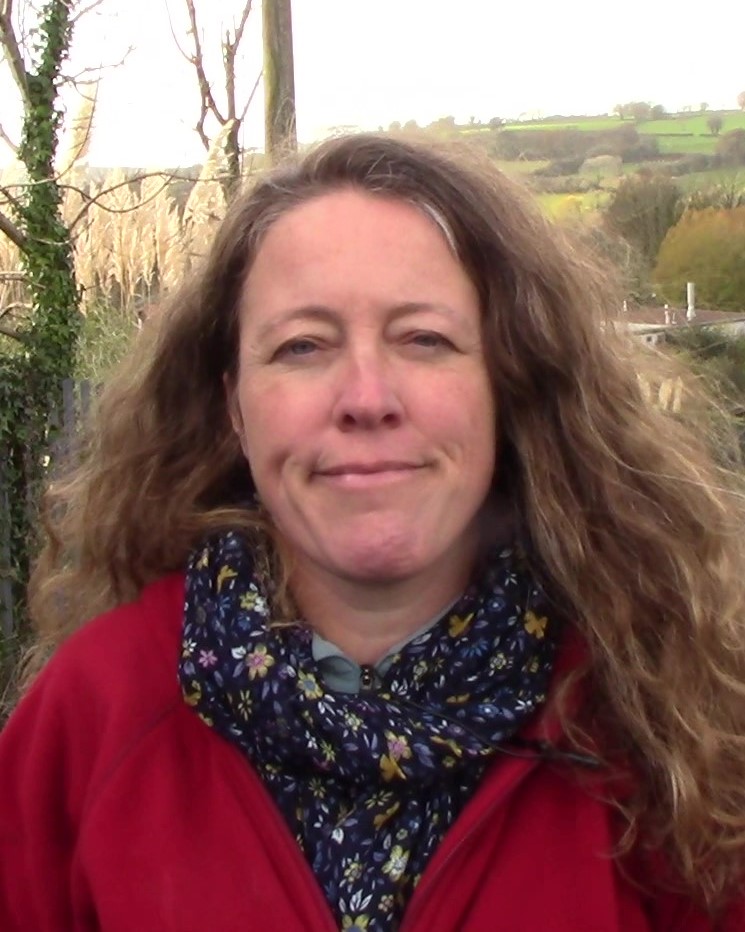
Boring plants and disgusting insects?
Dr Bethan Stagg is a research fellow in the University of Exeter’s School of Education. Her research focuses on biodiversity learning and attitudes, particularly for plants and invertebrates, and she has published widely about plant blindness, a well-documented deficit in interest and awareness towards plants. She was formerly an ecology lecturer in a land-based college and is interested in how specific experiences of biodiversity in the outdoors affect learning and wellbeing.
Whether it is scratches and stings from brambles and nettles, or being bothered by flies or mosquitoes, encounters with biodiversity can arouse a range of emotions, not all positive. Some species pose a considerable hazard to students, including ticks and certain plant species that can cause dermatological problems on contact. Students may exhibit low interest in plants or find learning species identification stressful or confusing. Encounters with insects may evoke feelings of fear or disgust. Finding dead animals, or observing predators and parasites in action, can be upsetting.
In this talk, I will present a range of case studies of students’ negative attitudes and experiences of plants and invertebrates, in primary, secondary school and post-18 education. I will share the results of my recently published literature review about attitudes to plants and the findings of a review in preparation, about attitudes toward biodiversity more broadly. We will explore evidence-based pedagogies that effectively address these issues and foster positive experiences of biodiversity.
